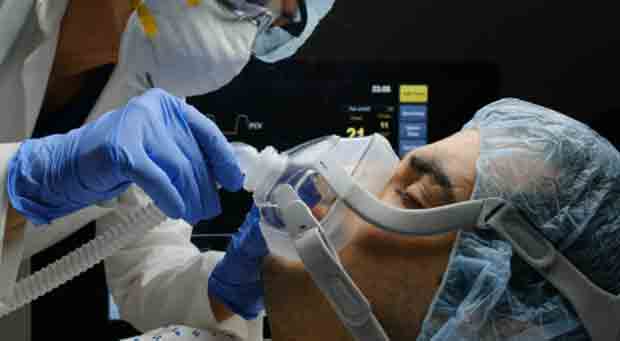A growing number of scientists and industry insiders are raising concerns about the implications of human composting, a method where dead humans are pumped into U.S. food supply.
This controversial process, which involves the liquidation of human remains, has sparked heated debates about its potential risks and ethical concerns.
The practice, legalized in Washington state in 2019 under Bill 5001 titled “Concerning Human Remains,” allows for the “natural organic reduction” of deceased bodies.
This method was promoted as an environmentally friendly alternative to traditional burial and cremation to fight climate change.
How Human Composting Works
The process, known as alkaline hydrolysis or liquid cremation, dissolves human remains using heated water and an alkaline solution.
Proponents claim it’s a safe and efficient way to handle remains, leaving no traces of DNA, pathogens, or organic material that could pose risks to public health.
Critics, however, argue that such assurances may not be entirely trustworthy, particularly in light of past controversies surrounding the food and Big Pharma.
Some whistleblowers, including coroners and embalmers, allege that remnants of these human remains are finding their way into the food and water supply.
According to their claims, processed human bones are being repurposed into calcium phosphate, which is then used in dietary supplements and other products marketed as treatments for calcium deficiencies.
Katrina Spade, founder and CEO of Recompose—a company pioneering human composting—has been a vocal advocate for this practice, describing it as a sustainable and soil-enriching option for urban death care.
RELATED: Insect ‘Flour’ Being ‘Hidden’ in Popular Foods, Experts Say
However, critics worry that the broader implications of such practices have not been adequately addressed or regulated.
The 2018 documentary Biosludged explored similar themes, highlighting concerns about how industrial and human waste may be recycled into consumer products.
Some critics even compare the scenario to dystopian scenarios, like those portrayed in the classic film Soylent Green, in which human bodies are repurposed into food.
Sceptics point to a potential connection between such practices and the rise in certain neurological conditions, including dementia.
They argue that introducing any trace of human remains into consumable goods—whether through food, water, or supplements—could carry unforeseen health consequences.
This has led to speculation about the role of environmental and dietary factors in the uptick of these diseases, compounded by other modern health concerns such as vaccine-related debates.
Critics of human composting emphasize the importance of being vigilant about what we consume.
They advocate for prioritizing organic foods, filtering drinking water, and avoiding overly processed or genetically modified products.
At the heart of the debate lies a broader question about the direction of modern agriculture, food production, and public health policy.
As these concerns gain more attention, transparency and regulation will be crucial to addressing fears about the unintended consequences of human composting.
RELATED: Tyson Foods Closes Major Meat Plant as It Transitions to ‘Insect Farming’











